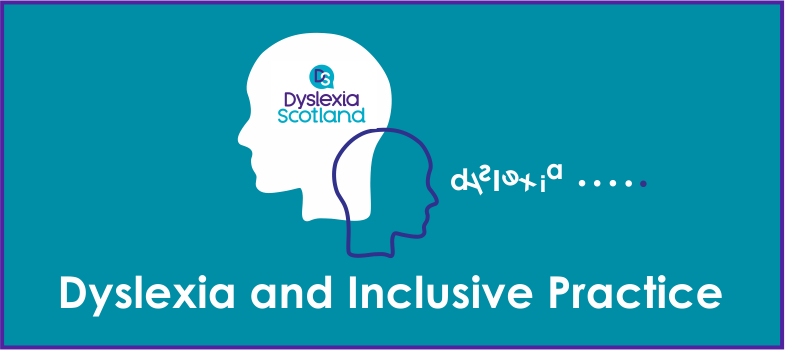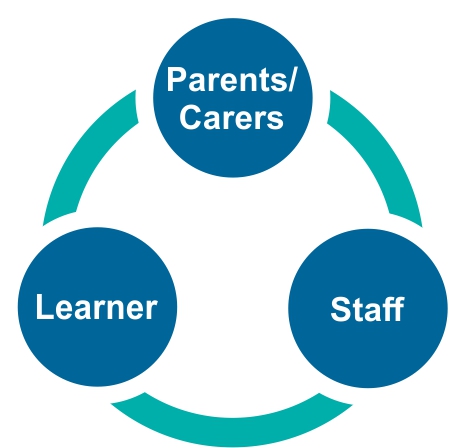3.1. Effective communication
For parents and carers, wondering if their child requires additional support can understandably be a worrying and anxious experience. It is extremely important when a concern is raised by a family, the learner or a member of staff that it is followed through transparently, sensitively and effectively. Developing supportive relationships between home and school is very important.
Learners with dyslexia will benefit from early identification, appropriate intervention and targeted, effective support at the right time.
Dyslexia can impact on parents, families and carers who may become distressed when they feel that their child is not receiving the support they need. In both children and adults, when dyslexia is unidentified or unsupported the negative impact can be high. Children and young people often lose motivation and become frustrated through the stress of trying to learn, not understanding what dyslexia is and feeling that they are ‘different’ to others because they find difficulty in doing what to others appear to be simple tasks. It is very important to share with families and the learner that being dyslexic can also bring positive skills. Below are some common strengths that can be experienced by individuals with dyslexia:
- Can be very creative and enjoy practical tasks
- Strong visual thinking skills e.g. seeing and thinking in 3D, visualising a structure from plans
- Good verbal skills and good social interaction
- Good at problem-solving, thinking outside the box, seeing the whole picture.
It is essential that information is shared with parents and carers so they can understand the holistic process of identification and support of dyslexia within Curriculum for Excellence. You will explore this further in Section 4, ‘Assessment and monitoring’ of this module and in Module 3. This includes information on when families choose to have an independent or private assessment for the identification of dyslexia.
Module 1, Section 1.6 Recap
Effective communication, respect and partnership working are key requirements between schools and families. They are essential in supporting appropriate and effective identification, planning and monitoring of literacy difficulties and dyslexia.
The GTCS suite of professional standards provides a framework for teachers to examine, inform and continually develop their thinking and practice. The core area of ‘Professional Values and Personal Commitment’ highlights the following as fundamental to being a teacher:
- Social justice
- Trust and respect
- Integrity
- Professional commitment
These, along with many aspects of Professional Knowledge and Understanding and Professional Skills and Abilities also articulate well with the roles and responsibilities of practitioners for effective communication with learners, parents and colleagues so that they:
- Are engaged in the holistic/collaborative identification process
- Understand what is happening, including the time scales, and are kept informed if there are changes.
In addressing barriers to learning, the importance of effective communication should never be underestimated. Figure 19 highlights those who should, and also who may if appropriate be engaged in effective partnership working. It must be appreciated that there may be other additional people involved if required, depending on the child or young person’s individual needs. The lack of effective and transparent communication can be one of the causal factors of complaints that are raised against a school or local authority. Poor communication can result in misinformation and a misunderstanding of what support and approaches should be taken or should be in place by both staff and parents. Building strong relationships will make it easier to solve disagreements informally.
Legislation is in place to support parents, children and young people to:
- Request specific assessments which must begin within a set time frame
- Access free advocacy and mediation services
- Have access to assessments and information documented
3. Supporting learners and families

